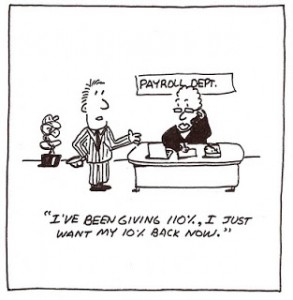Filing your tax return
The deadline for individuals to file Self-assessment tax returns on paper has now passed. Anyone preparing their tax return for the year ended 5th April 2014 must now file it online before 31st January 2015. Taxpayers often put off preparing their tax return until the Christmas period or later. However, this really doesn’t leave very long to get this completed before the January deadline, and gives you even less scope to plan if there’s a payment due on 31st January too.
There are several advantages of filing tax returns early. You can avoid penalties and cash flow problems and you’ll have the opportunity to gain any possible tax refunds sooner.
Tax payment dates remain the same
Your tax payment date is not linked to the date you file the tax return. The payments are due on 31st July (second payments on account) or 31st January (balance and the first payment on account), regardless of when the tax return is filed.
…but tax refunds are paid earlier
If you file your tax return before the filing deadline, you should receive any tax refund you are due fairly soon after submission. HMRC do not wait until 31stJanuary to pay you. Therefore, if you suspect you have overpaid tax and are due a refund, you should really prepare your tax return as soon as possible so that you can gain the income sooner. Don’t allow it to sit in HMRC’s bank account, when it could be in yours!
Manage your cash
Once your tax return has been done, and your tax liability calculated, you have time to start saving for the tax bill and to manage your cash flow. If you pay your tax bill late, HMRC will charge you interest and possibly even late payment penalties.
The other benefit of filing early is that if your tax liability is under £3,000, you pay tax via PAYE and you submit your tax return by 30th December, you can opt to have your tax liability collected through your tax code. This means it will simply be deducted from your wages or pension each week or month.
Reduce errors and plan ahead
If your affairs have changed this year and you have losses, or a significant amount of additional income, then preparing your return early can be an advantage because it gives you the time to consider any tax planning opportunities which could lead to you saving tax.
Furthermore, having plenty of time to prepare your return reduces the risk of errors being made, because you aren’t rushing to get it finished.
Corrections
If you make a mistake on your tax return you’ve normally got 12 months from 31 January after the end of the tax year to correct it. For example, for the 2013-14 return you have until 31 January 2016 to make an amendment.
So the earlier you submit your return, the longer you have to make any corrections.
HM Revenue & Customs
Trying to get hold of HMRC can be pretty difficult, but it’s even more difficult around the tax return deadline. So you should really avoid leaving your tax affairs until December or later; just in case you need to speak with the department and cannot get through.
If you are due a tax refund, you’re also likely to experience a longer turnaround time if you file your return during their peak times.
Penalties
There is a £100 automatic penalty payable if your tax return is filed late.
And if your tax return is more than three months late, £10 daily penalties start to accumulate up to a maximum of £900 and there are even harsher penalties if your return is more than six months late- so they could well top £1,000 in all.
Using an accountant will take away the stress of filing tax returns and leave you to concentrate on running your business. Not only should penalties and interest be avoided, but accountants may even be able to save or defer you tax. They can also keep you informed of your tax position and abreast of any changes in the tax regime.
Contact us if you would like help getting your tax return filed on time






